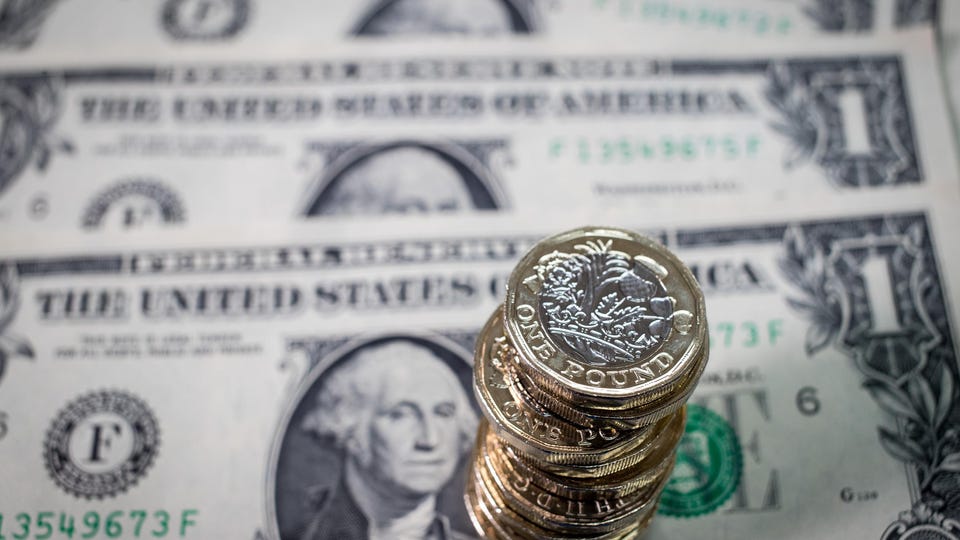Policy A Rising, or ‘Strong Dollar’ Is Not What’s Holding Down Equities John Tamny Contributor Opinions expressed by Forbes Contributors are their own. Following New! Follow this author to stay notified about their latest stories. Got it! Oct 2, 2022, 10:00am EDT | Share to Facebook Share to Twitter Share to Linkedin If you’re a Forbes or a Forbes.
com reader, odds are you’re an investor. And if you’re an investor, you’re likely familiar with the popular narrative at the moment that a rising dollar helps explain troubled equity markets. The view isn’t very well-founded.
All that’s required to bolster the previous assertion is stock-market history. In the decades since President Nixon severed the dollar’s link to gold (thus unleashing “strong” or “weak” dollars based on the currency’s direction), stock market returns were greatest in the decades when the dollar was “strong,” and weakest in decades when the dollar was “weak. ” Which is somewhat of a statement of the obvious.
Investors know why. When you put money to work you’re in pursuit of returns in dollars. More specifically, you pursue returns in dollars because of what dollars can be exchanged for.
In that case, stop and think what’s more appealing to you as an investor: returns in dollars that are exchangeable for more and more goods and services, or dollars that fetch fewer and fewer market goods. The answer is fairly obvious. And it helps explain the absurdity of the belief that a falling currency renders a country economy more competitive.
What a laugh. If we ignore history yet again, and the economic collapse in countries that have pursued devaluation (think Argentina, Zimbabwe, Lebanon, etc. ), we can’t ignore that devalued money purchases fewer goods and services.
Applied to production, the imported inputs that enable production become more costly. There’s no way to cut corners in the real world, which means there’s no way to devalue one’s way to prosperity, which means there’s certainly no way to boost investor returns with it. More specifically, as pursuers of dollar returns, periods of dollar weakness are bad for investors simply because they’re a tax on investment.
Think about it. If you’re pursuing returns in a currency that is weak, any returns you achieve are logically worth less. This helps explain why stocks soared so profoundly in the rising dollar 1980s and 1990s, but went flat in the weak dollar 1970s while declining substantially in the falling dollar 2000s.
The direction of a currency very much affects returns. Recommended For You 1 Biden’s Proposed IRS Bank Account Snooping Authority Runs Into State Resistance More stories like this Fewer stories like this 2 2021 Diversity Green Card Lottery Winners To Be Shut Out Because Of Visa Deadline More stories like this Fewer stories like this 3 The Swamp Grew – Even Under President Donald Trump More stories like this Fewer stories like this Just the same, the direction of the currency also logically affects future growth. If the dollar is in decline, it’s not just that the latter is a tax on investment.
It’s also that the decline pulls investment away from funding creativity. That it does is fairly self-explanatory. Investment meant to transform the future is risky investment.
Odds of success are lower simply because change is hard. Which is why investment is more likely to flow into real, existing wealth during periods of currency weakness. The safer path amid periods of devaluation is to purchase established wealth: think land, housing, rare stamps, art, gold, etc.
Conversely, when the dollar is rising (or best of all, stable) the return-sapping tax of devaluation is less evident as a risk factor. With it less evident, investors can put more precious capital to work with an eye on creation of wealth that doesn’t yet exist . All of the above is another signal of the investor challenge brought on by weak currencies.
Markets anticipate, and in anticipating, they’re logically going to price a less vibrant tomorrow if the present is defined by investment in the known versus investment in the unknown . In other words, currency devaluation holds the present in place, thus slowing the funding of creativity meant to rush an altogether different future into the present. None of this is good for investors.
To be clear, in a perfect world the “rising” or “falling” dollar would rarely – if ever – be discussed. Money in a normal world would be quiet simply because money itself is not wealth. In reality money is agreement about value among producers that facilitates the exchange of actual wealth, nothing else.
In a much better world, the dollar would be constant as a measure of value. Indeed, changes in a measure don’t alter reality for the better as much as they confuse it. Still, let’s not pretend that a rising currency spooks investors for it rendering U.
S. companies less competitive, or whatever other theory is offered. Logic rejects such a view, as does history.
Follow me on Twitter . John Tamny Editorial Standards Print Reprints & Permissions.
From: forbes
URL: https://www.forbes.com/sites/johntamny/2022/10/02/a-rising-or-strong-dollar-is-not-whats-holding-down-equities/



